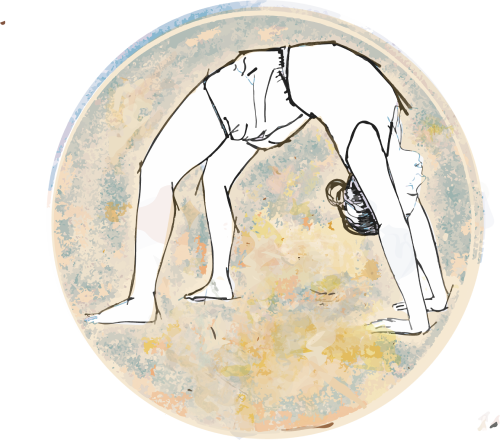Will yoga help me lose weight?
Will yoga increase my stamina/ strength? Will it make me a better sportsperson/ runner/ swimmer/ footballer?
Will yoga help me tone my muscles/ increase flexibility?
Will yoga help me de-stress?
Is yoga therapeutic? will yoga bring relief from my physical conditions – back pain, arthritis, thyroid problems, knee pain etc.
“The young, the aged, the diseased, and the weak – all may take to the practice of yoga and derive its benefits without hindrance.”
– Hathayoga Pradipika
A beginner might be drawn to yoga for various reasons – or for no particular reason. All reasons are good, as long as one understands that irrespective of one’s personal motivation for wanting to start yoga, it is a holistic SUBJECT, and one is entering its fold as a STUDENT. To be a student who seeks to sincerely learn the subject, the mind needs to be open and receptive for all inputs. Specific benefits will certainly follow, but getting hung-up on short-term goals will impede progress on the path of yoga.
So, keep an eye on your primary motivation for coming to yoga, and adapt your practice accordingly (and the teacher should be able to guide you on how to do that). Monitor over a period of time whether that primary motivation got fulfilled – and don’t be surprised if it ceases to be important to you. But to derive the maximum benefit out of yoga, embrace the subject with an open, curious, reverant mind.
Again, will yoga help me lose weight?
One of the most oft-repeated queries deserves a longer answer:
First, it is important to understand the many factors that effect weight. Much interesting research has happened in this area in the past decade. Here is the upshot:
- Over thousands of years of evolution, our brains have been hardwired to react to food scarcity as a signal of an onset of famine. When we restrict our diet, our brains react by slowing down our metabolism and preserving those very calories that we are trying to lose. This is why diets will always fail in the long term.
- Nutrition pays a big role in one’s state of health – no weight loss plan can be sustained without making the switch to healthy eating
- Physical activity aids in weight loss by burning calories. To a point, any physical activity is preferable to a sedentary lifestyle – not just for weight loss, but also for general well-being. But physical exercises can also end up being a series of short-range repetitive movements that stress joints, shorten muscles, irritate internal organs. As we age, many of the most popular physical exercise programs can become stressful on the body.
- Adequate sleep is necessary for everything from managing metabolism to boosting immune system
- Weight gain is only one of the outcomes of the accelerated change in our lifestyles over the last few centuries – others are rise in allergies and autoimmune diseases, higher instances of cancer. These outcomes are a result of the complex and inter-related chain of events that takes place as our bodies struggle to cope with the environments in which we now live (high stress levels, unfettered access to sweet and synthetic food etc.). Targeting a single symptom without addressing the underlying and related issues will not bring long lasting results.
- Media imagery of how one should look often leads to unrealistic, and unhealthy expectations from oneself. There is no point in being thin if you feel so wiped out that you cannot be functional. Thin people highlighted in the media may belong to a small minority of the population who are genetically built that way, whose images might have been digitally altered, and if we really knew their stay-thin recipes and their overall state of health, we might not want to emulate them.
[/vc_column_text][/vc_column][/vc_row][vc_row][vc_column][vc_column_text]Yoga helps in weight management through a combination of reasons:
- Yoga regulates the body’s metabolism by directly working on the body’s biochemistry – the intricate system of organs, glands and hormones spread throughout our body, and also in the brain (the master control for our endocrine system lies in our brains). Over time, this can ‘reset’ the body’s internal metabolism to make it more efficient.
- Yoga works on the muscles, ligaments and bones, improving body posture and tone.
- Yoga does all of the above without irritating our most important organs, like the heart and the brain, and without stressing the body’s important joints like the knee and the spine.
- Eventually, yoga helps one in better decision making with respect to everything – including what, when and how much one eats.
The pointer on the weighing scale might move backwards a little slower than with a crash diet, but you will start experiencing a ‘lightness’ of being very soon after you start your practice. And once you get to your desired physical state, the chances of staying there will be much higher.
Here’s some of the easy-to-understand stuff on the topic of weight. But go ahead, and do your own research as well:
Our natural sleeping cycle is nothing like what we do now
How much sleep do we really need?
How our stone age bodies struggle to stay healthy in modern times
The Beauty Myth, Naomi Wolf[/vc_column_text][/vc_column][/vc_row]


